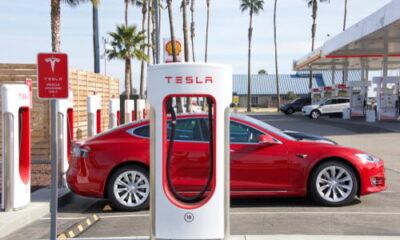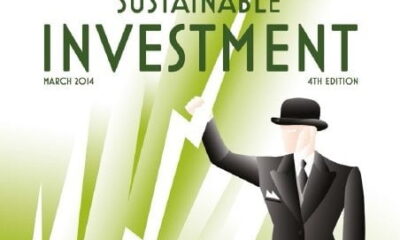Companies around the world are prioritizing sustainability more than ever before. From trying to reduce landfill waste to reining in greenhouse gas emissions, companies have good reason to practice environmental initiatives.
In addition to helping the Earth, using sustainable materials in manufacturing, conserving energy, recycling and more can open economic opportunities for both businesses and people.
Learn more about today’s green companies and their accomplishments to set achievable goals for the environment’s future.
1. Salesforce
Salesforce, a CRM company, announced the Step Up Declaration challenge in 2018 that focused on establishing corporate commitments to help achieve a climate turning point by 2020.
The declaration centered on using new technologies to reduce emissions across economic sectors. Salesforce made its own environmental commitments and announced its most significant renewable energy agreement to date, in the hopes of achieving 100% renewable power by 2022.
Some of Salesforce’s goals include:
- Partnering with suppliers to reduce emissions
- Integrating green building practices
- Practicing environmental innovation at the Salesforce Tower in San Francisco
2. Nike
Nike has an entire line of sustainable products featuring materials such as recycled polyester. It also uses renewable energy during manufacturing processes while encouraging many of its suppliers to develop environmental policies.
The Nike Grind Program eliminates waste by collecting post-consumer athletic shoes that do not contain certain nonrecyclable materials. Nike then reuses parts of the sneaker to make other items, such as materials for weight room floors and baseball fields.
Anyone who has purchased a pair of Nike shoes knows the signature cardboard box they come in. After looking for ways to redesign the container, Nike created an option that consists of 100% recycled content and uses 30% less material. The result is a recyclable box stronger and lighter than its counterparts.
3. Apple
When considering environmentally conscious companies, many don’t look at big tech businesses such as Apple. However, the company focuses on three main areas — reducing its impact on climate change, preserving precious resources and using safer materials in products and processes.
Since setting those goals, Apple has created several wind and solar farms to power their data centers, retail stores, corporate offices and more. The corporation is attempting to preserve materials by increasing production efficiency, using renewable resources and designing long-lasting products. Apple has also made strides in improving its environmental testing lab to ensure products are safe.
4. Burt’s Bees
Burt’s Bees’ iconic honeybee logo shows the makeup company’s commitment to the environment. Its 2018 Sustainability Goals Update also applies to its parent corporation, The Clorox Company. Burt’s Bees has committed to sending zero waste to landfills through recycling, composting and waste-to-energy bins. This cosmetics business also emphasizes saving electricity and water through energy-efficient lighting, resource management software and efficient production equipment.
Burt’s Bees hones in on natural products as the natural cosmetics market continues to grow. Today’s green beauty products, typically cosmetics featuring natural ingredients from renewable raw materials, are expanding. For example, Burt’s Bees uses botanical oils, herbs and beeswax to create most of their goods.
5. Disney
As far as sustainable companies go, Disney is a giant. It uses zero net direct greenhouse gas emission policies in all of its facilities. It’s also trying to reduce electrical and water consumption, which will reduce indirect greenhouse gas emissions. Technology helps Disney save water and lower its manufacturing and distribution footprint as well.
Overall, Disney is a leader in environmental responsibility for policies such as:
- Zero waste (nothing in landfills)
- Net positive environmental impact
6. Starbucks
When grabbing coffee, many opt for disposable coffee cups containing 5% polyurethane plastic, making recycling and composting difficult. However, Starbucks is developing an eco-friendly container to double the cups’ recycled content and reusability by 2020.
This green company is also committed to buying 100% ethically-sourced coffee, making coffee the world’s first sustainable agricultural product and providing 100 million coffee trees to farmers by 2025. Starbucks would also like to build and operate 10,000 energy-efficient, green retail stores by 2025.
7. Dell
Dell first started its Legacy of Good Plan in 2013 to use technology to drive human progress and advance health, happiness and prosperity. In 2020, Dell’s new Legacy of Good Plan is looking at the company’s long-term commitment to society, its team members and the environment.
The business has already achieved its goal of using 50 million pounds of sustainable materials in its products. They hope to increase that number to 100 million pounds in the future.
Dell also announced it would increase the annual usage of ocean-bound plastics by 10 times by 2025. This initiative would keep 16,000 pounds of plastic from entering the ocean.
8. Honda
Equating cars with sustainability doesn’t always compute with some consumers, but Honda is changing the narrative and becoming a sustainable company.
It has a goal to reduce CO2 emissions by 30% from the motorcycles, automobiles and power products it produces when comparing levels from 2000 to 2020. Its big project is triple zero-zero CO2 emissions using renewable power, zero energy risks and zero resource and disposal risks.
Honda hopes to do this by managing resources and working with its disposal partners to make sure it safely and effectively transfers waste materials. It will also work with renewable utility companies to use their technology in automobiles, as well as encourage customers to pursue environmentally-friendly lifestyles.
9. IKEA
Although IKEA is known for DIY and less-expensive furniture, it’s also a leader in sustainability efforts.
This green company has new products that help people cut their electricity and water use, such as a tap nozzle. It has also introduced eco-friendly materials into the production process, which will lower costs and help the environment.
IKEA’s Group Sustainability Strategy for 2020 features recycling or incinerating 91% of waste from their stories for energy recovery. It will also use more sustainable materials in production and sell LED light bulbs for energy savings.
10. Patagonia
People have long known Patagonia as an activist and environmentally conscious company focused on conservation. It’s one of the largest funders of environmentalist causes, and it gives 1% of all sales to ecological grants and organizations. Plus, Patagonia encourages its customers to buy and sell their worn wear, and it even repairs used clothing so other consumers can wear it.
Going forward, the company’s Tin Shed Venture involves partnering with businesses centered on renewable power infrastructure, regenerative organic agriculture, water conservation, sustainable material usage and more. Small businesses can apply for funding by listing how they’re working for a better environment.
Join the Ranks of Sustainable Companies
Now is the time for all organizations to reflect on their environmental responsibility.
Whether it’s reducing materials used in the manufacturing process, educating your employees through free college courses on environmental studies or design, or recycling more waste, all businesses can do their part by making changes small and large.
Conclusion:
Companies around the world are prioritizing sustainability more than ever before. From trying to reduce landfill waste to reining in greenhouse gas emissions, companies have good reason to practice environmental initiatives. A survey platform Latana has recently introduced a sustainability tracker to help businesses better structure their brand messaging by providing key insights about their consumers’ perception when it comes to a brand’s environmental initiatives, thus knowing how to approach their strategy.
Enterprises can hold green environmental protection conferences, put forward new sustainable development goals, encourage employees to cultivate green lifestyles, and make their own contributions to the construction of ecological civilization and sustainable economic development. For those participating in the meeting, we can give them small gifts that advocate environmental protection, such as lanyards with environmental slogans printed on them, so that environmental protection can be more deeply rooted in the hearts of the people. Let’s learn more about lanyards at GS-JJ. Go Website!
Read Also: Creating a Healthy Work Environment for Your Eco-Friendly Business


 Environment11 months ago
Environment11 months agoAre Polymer Banknotes: an Eco-Friendly Trend or a Groundswell?

 Features10 months ago
Features10 months agoEco-Friendly Cryptocurrencies: Sustainable Investment Choices

 Features11 months ago
Features11 months agoEco-Friendly Crypto Traders Must Find the Right Exchange

 Energy10 months ago
Energy10 months agoThe Growing Role of Solar Panels in Ireland’s Energy Future































